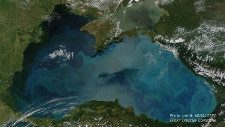Sino –Russian Relations at the Start of the New Millennium in Central Asia and Beyond
Niklas Swanström
Sino–Russian relations have swayed considerably in the second millennium. During the Yeltsin era, China–Russia relations were still strong, but this changed abruptly after Putin’s accession to the presidency in 2000 and his initial pro-Western adventures. This was, in no small part, due to Russia’s involvement in the war on terror, together with Russia’s complicity in a US military presence in Central Asia which did not go down well in Beijing. Putin’s domestic constituency found his swing into Washington’s fold equally awkward, which created no small amount of criticism in Russia. Convinced that things could not get much worse, Putin’s acceptance of NATO’s expansion into the Baltics, his approval of US withdrawal from the ABM-treaty, and his quiet consent for an American military presence in Georgia raised additional fears in the Duma, within Russian public opinion, and to some extent among the Chinese. This was perceived as a direct surrender to American superiority and aggression, and it would not last for long.
Related Publications
-
ISDP Annual Report 2023
ISDP’s Annual Report for the year 2023. We look back on 2023, a year in which tensions and conflicts captured the strategic space in ISDP’s focus areas, making headlines around […]
-
Ukraine: The Inflection Point in the China-Russia Axis
The ongoing conflict in Ukraine has catalyzed a profound shift in global power dynamics: the deepening of the partnership between China and Russia. This relationship, while rooted in history, represents […]
-
The US and EU, and the Emerging Supply Chain Network: Politics, Prospects, and Allies
The Global Supply Chains have evolved from simply logistical achievements to being the bedrock of the global economy. Driven by technological advances and geopolitical shifts, this transformation underscores the critical […]
-
China as a Black Sea Actor: An Alternate Route
China’s international role has expanded rapidly in the last decades, and the Greater Central Asian region, Europe, and the Middle East, to which the Black Sea region (BSR) connects, are […]
-
The Political Split at the Heart of Taiwan’s Struggle against Foreign Disinformation
Taiwan’s struggle against foreign disinformation and concerns about China’s impact on its 2024 election has received much international attention recently. This issue brief examines the domestic and international politics behind […]




